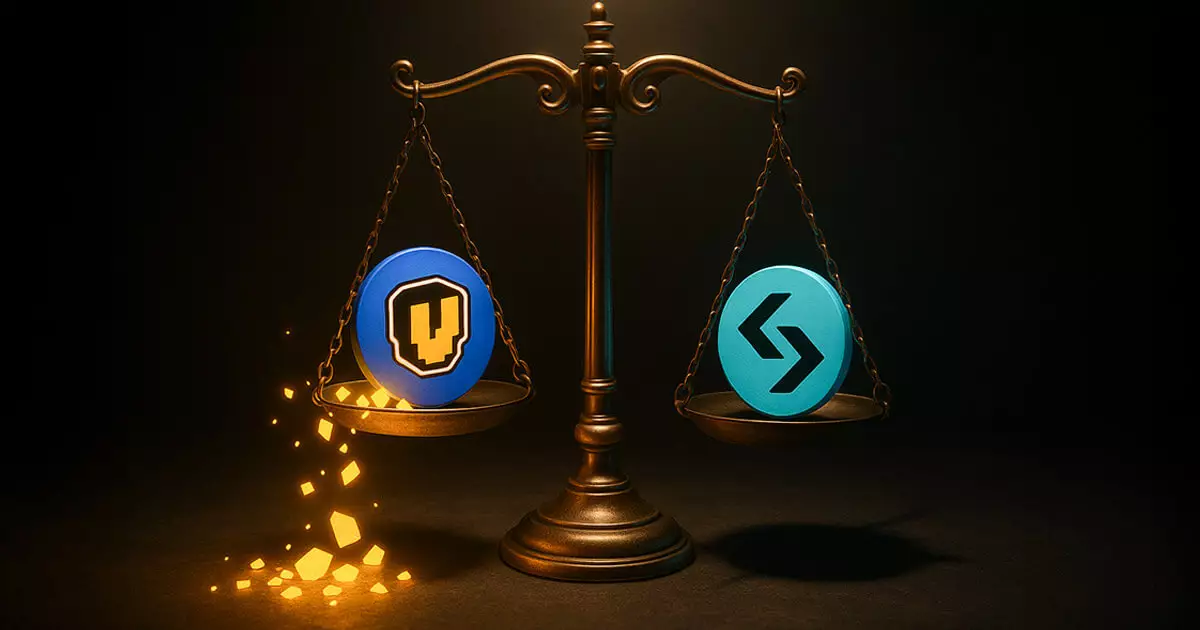In the fast-paced world of cryptocurrency, few incidents evoke as much outrage as a trading glitch that leads to massive, unexpected profits. On April 20, the Bitget exchange experienced a significant technical fault that sent the price of VOXEL, a relatively obscure gaming token, soaring by over 200%. This event resulted in trading volumes reaching an astonishing $13 billion, surpassing even Bitcoin for that day. Such volatility should raise eyebrows—not because of the glitch itself, but because it highlighted the reckless behavior underlying some crypto trading practices.
While Bitget has decided to pursue legal action against eight users accused of exploiting this glitch for over $20 million in profit, it begs the question: is this a legitimate crackdown on unethical behavior or merely a CYA (cover your assets) maneuver by the exchange? Xie Jiayin, Bitget’s executive, pointedly referred to these traders as part of a “wool-pulling interest group,” suggesting levels of premeditated maneuvers that sound more like a conspiracy theory than a concerted effort to exploit a system flaw. However, such sensationalism often distracts us from the broader context of the crypto ecosystem, which is rife with potential for exploitation.
The Role of Accountability
For all the shady dealings associated with cryptocurrencies, one of the linchpins of market integrity is accountability. Bitget’s decision to freeze accounts and initiate legal proceedings is an attempt to hold participants accountable for facilitating what the company sees as a breach of trust. Moreover, it highlights a vital aspect of the cryptocurrency landscape: the need for regulatory frameworks that allow exchanges to enforce ethical trading. Without regulations, the wild west ethos thrives, breeding a culture where profit at any cost becomes the norm.
Interestingly, Bitget emphasized that all recovered funds would be redistributed to legitimate users impacted by the glitch, potentially offering a balm for the wounds inflicted on ordinary traders. While their commitment to community welfare may be commendable, it raises another looming question: can any computation of fair and just restitution truly make amends for what seems like chaotic free-for-all trading?
Future Implications for Trading Practices
What happened with VOXEL could foreshadow more extensive implications across the cryptocurrency landscape. Hacks, information asymmetries, and trading glitches underscore a fundamental weakness in how crypto exchanges operate. Instead of gaming the system, traders should be compelled to foster an environment that preserves value and integrity. However, with crypto’s anonymous nature, restoring trust proves challenging.
As Bitget prepares to release a comprehensive report detailing this incident, one wonders if this will merely serve as a case study or a call to action for better practices. Providing transparency not only aids in healing from grievances but also in charting a course for a more equitable trading environment in the crypto space. The answer lies not just in punitive measures but in creating a culture where responsible trading isn’t just encouraged—it becomes the standard.
As the dust settles on this high-stakes dispute, industry observers are left pondering the real winners and losers in this ongoing saga. Will the fallout compel exchanges to implement stricter protocols, or will incidents like this merely serve as cautionary tales in an industry that’s all too often motivated by the siren call of quick profits?
















Leave a Reply